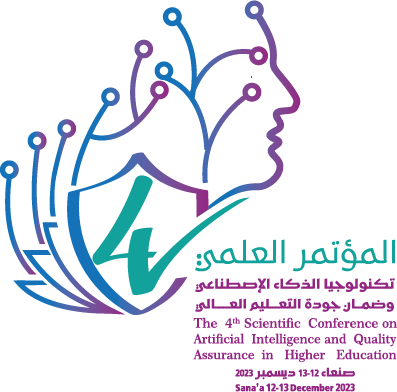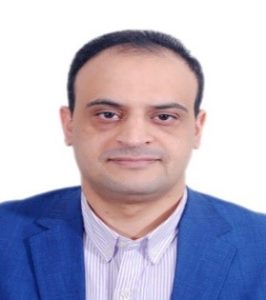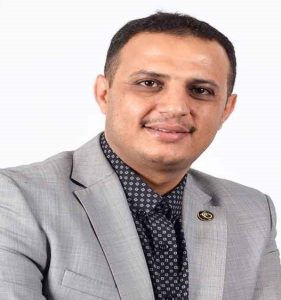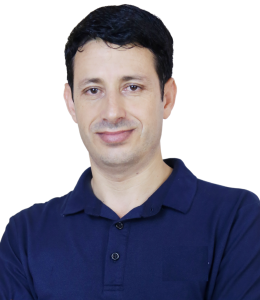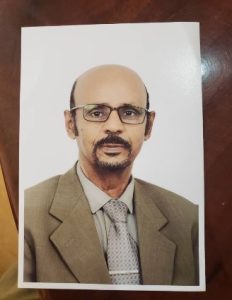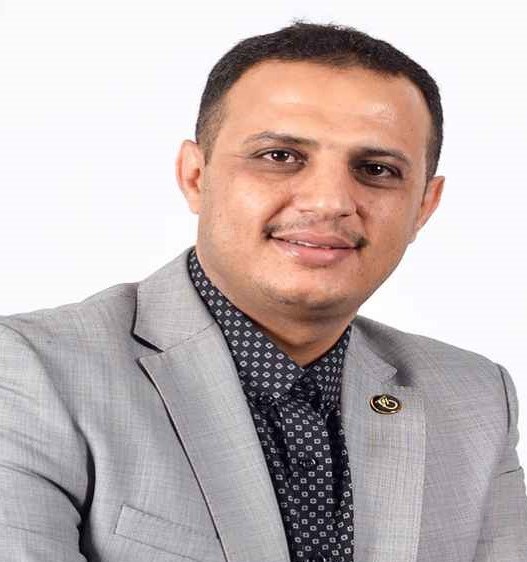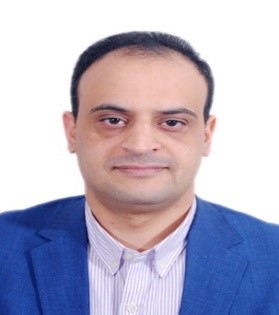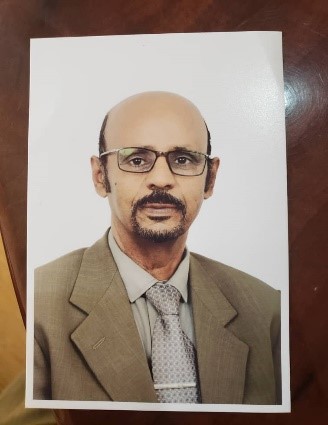About the Conference
The Organizing Committee of organizes the 4th Scientific Conference titled:
Artificial Intelligence Technology and Quality Assurance in Higher Education
is pleased to invite researchers, experts, academicians and specialists in
universities and institutions concerned with the Conference’s topics to present their
research papers to the Organizing Committee.
Place : Sana’a.
Time: December 12 - 13, 2023
Higher education is characterized by prominent historical features and shared global objectives all over the world. However, the goals of academic institutions vary across different regions and even sometimes within the same region. They also differ based on historical period. Nonetheless, there exists a unified framework for universities objectives, which can be identified in terms of three fundamental missions: education, scientific research, and community service. In the third millennium, to ensure the success of higher education institutions in achieving quality, effectiveness, and excellence in fulfilling their functions under normal circumstances and during crises, universities should be able to adapt to recent developments and keep pace with new transformations in today’s world of digitalization and globalization. This is especially crucial with the increase in global risks and pandemics. This can be achieved through enhancing intellectual and technological awareness, localizing knowledge, embracing new applications and technological programs, and using modern methods in education, research, and various university services..
The convening of the 1st E-Learning Conference in November 2020 had a prominent role in directing the attention of State leaders and the public and private sectors institutions towards the importance of e-learning and providing the required capabilities, starting with policies and legislation, passing through infrastructure, and coming to establishing a culture of optimal investment of technology in the learning process.
The Ministry of Higher Education and Scientific Research in Yemen seeks to gradually integrate digital transformation in higher education by utilizing available resources. The Ministry established Yemen Center for Information Technology in Higher Education (YCIT-HE) in 2007, tasked with proposing general policies for information systems and technology in the higher education sector. It also suggests plans and programs that contribute to building information services for libraries, e-learning, and more across all higher education institutions. However, with the emergence of COVID-19 pandemic, which affected most countries, the educational process in Yemeni universities was suspended. Therefore, the leadership of Higher Education Ministry considered the challenging circumstances and realized the urgent need to incorporate technology in administration, teaching, and scientific research both at the level of the Ministry and universities. The Ministry leadership has also recognized the role of technology in enhancing higher education and facilitating academic accreditation. This situation calls for an urgent action for developing visions and ideas, mobilizing resources, conducting studies and research, updating policies and strategic plans, developing academic programs and courses, as well as employing technology across various educational and administrative aspects
The Yemen Center for Information Technology in Higher Education (YCIT-HE), under the supervision of His Excellency Mr. Hussein Hazeb, Minister of Higher Education and Scientific Research has actively organized a series of conferences, in collaboration with the Emirates International University and the University of Science and Technology, with a view to harnessing technology across various educational facets. The latest of these conferences was the 3rd Scientific Conference held in 2022, titled Technological Knowledge and Digital Transformation in Higher Education.
The significance of the current conference on Artificial Intelligence Technology and Quality Assurance in Higher Education lies in its aim to promote the integration of artificial intelligence technology within higher education institutions effectively and securely. It also aims to achieve the desired quality of higher education by creating a new platform for experts and specialists in the fields of artificial intelligence and higher education to engage in fruitful discussions and interactions. The conference sheds light on a plethora of contemporary challenges and transformations resulting from the tremendous and rapid developments in the fields of artificial intelligence. This realm has witnessed unprecedented growth and development, particularly in such sectors as healthcare, administration, and education. Furthermore, the importance of the conference lies in furnishing decision-makers with up-to-date and comprehensive scientific recommendations and proposals that contribute to shaping policies and making appropriate decisions in alignment with the conference's themes. The event also strives to enhance collaboration between educational institutions and companies in the realms of artificial intelligence and quality assurance in higher education. It enables Yemeni universities and the community at large to get access to the latest relevant Arab and international experiences, experiments, and practical applications, harnessing them in line with the State’s national vision and overarching directives, the strategic plan of the Ministry of Higher Education and Scientific Research, as well as the digital age requirements, community needs, comprehensive and sustainable development.
The conference aims to spotlight the latest advancements in artificial intelligence technology and quality assurance in higher education. It serves as a platform for the exchange of knowledge and expertise in this field, fostering collaboration and partnerships among educational institutions, governments, corporations, and civil society to achieve common goals. The conference objectives include the following:
- Studying and analyzing the challenges facing the application of electronic and virtual education in the Republic of Yemen.
- 1. Promoting awareness and understanding of the recent developments in artificial intelligence technology and quality assurance in higher education.
- 2. Facilitating the exchange of knowledge and expertise in the field of artificial intelligence, with a special focus on quality assurance in higher education.
- 3. Addressing challenges and issues facing the use of artificial intelligence in higher education and sharing potential solutions to overcome these challenges.
- 4. Strengthening collaboration among educational institutions, corporations, and governments to advance artificial intelligence technology and promote quality assurance in higher education.
- 5. Shedding light on the ethical opportunities and challenges posed by artificial intelligence in the enhancement of higher education quality.
- 6. Encouraging scientific research, technological development and innovation in the field of artificial intelligence, with a view to enhancing quality assurance in higher education.
Free
Speakers
أجندة المؤتمر
توزيع ساعات العمل على فعاليات المؤتمرImpact of Generative AI In higher education
Abstract Artificial intelligence (AI) that generates new material or data from preexisting data is known as generative AI (GenAI). Generative AI has the potential to revolutionize the higher education industry. It can push teachers to provide more authentic evaluations while also assisting students in acquiring new skills and competencies. According to a number of studies, […]
Prerequisites for Implementing Artificial Intelligence in Education
Abstract: The integration of Artificial Intelligence (AI) into the field of education has gained significant attention in recent years, promising to revolutionize the way students learn and educators teach. However, the successful implementation of AI in education hinges on the presence of several critical prerequisites. This presentation explores the essential conditions and factors that need […]
الذكاء الاصطناعي: ثورة جديدة في إدارة المنظومة التعليمية والجامعات
يعد التعليم العالي أحد أهم القطاعات الحيوية في المجتمعات الحديثة، حيث يلعب دورًا محوريًا في إعداد رأس المال البشري اللازم لتحقيق التنمية المستدامة وصولاً الى مجتمع المعرفة والاقتصاد الرقمي. وفي ظل التحديات المتزايدة التي تواجه قطاع التعليم العالي، تعد إدارة المنظومة التعليمية في الجامعات بما يحقق أهداف العملية التعليمية ويضمن جودتها أحد أبرز التحديات الراهنة […]
الحوكمة الذكية: مدخل لتطوير الجامعات اليمنية
الحوكمة الذكية: مدخل لتطوير الجامعات اليمنية ا.د/ احمد الهبوب ملخص: يرتبط الذكاء الاصطناعي بمصطلح الحوكمة كباقي علوم الثورة التقنية المعاصرة، وتحظى الحوكمة الذكية بأهمية قصوى في مؤسسات التعليم العالي في ظل تبني مدخل الجامعة الذكية، وعليه فإن الاستخدام المنهجي الامن للذكاء الاصطناعي في التعليم العالي يقتضي اتباع نهج قائم على مبادئ الحوكمة الذكية، لذلك فان […]
Organizers
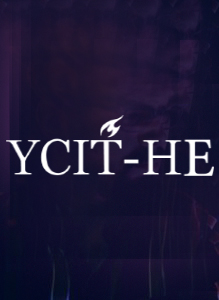
مركز تقنية المعلومات
نشئ المركز في العام 2007 م وبدا النشاط الفعلي عام 2008 م ليقدم خدماته المعلوماتية والبنية التحتية للمؤسسات التعليمية وبقية قطاعات الولية في حدود خدمات معينة وكان التركيز الاكبر منصب حول الشبكات والربط الشبكي بين الجامعات يليه التركز نحو الخدمات والتطبيقات بدا المركز بالعمل بتمويل هولندي الى ان انتهى هذا الدعم عام 2011 م، اعتمد المركز منذ ذلك الوقت فقط على تمويل نشاطاته من رسوم الخدمات التي يقدمها المركز خدمة لأبنائنا الطاب في الجامعات اليمنية.
